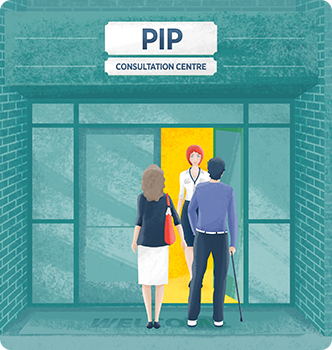Gathering Evidence - A Guide for Claimants
Evidence can be submitted to the DWP at any time. They will pass that evidence on to us. Submitting as much evidence as you can at the start of the process when you are completing your PIP 2 Claim form may mean that you do not need to have a consultation.
If we do need to see you for a face to face consultation, you can bring additional evidence that will be read by the Health Professional you meet and will help them understand your health condition or disability better.
Any recent or new evidence which tells us how your health condition or disability affects your daily life (if your health condition has changed since you first applied for PIP) is really useful to us.
You are not expected to pay to get hold of your evidence. If you are unable to get it, please provide contact details for the people who look after you and know you best on your PIP application form (for example; GP, consultant, psychiatrist, specialist nurse, psychiatric nurse, teacher, carer or support worker).
Watch this video to find out more about gathering supporting information for your claim. Also available in BSL.

Examples of Supporting Evidence
We have listed some examples of evidence that may be useful to accompany your PIP claim form. They may not all be relevant to you of course.
- Letters from hospitals, GPs or specialists (but not appointment letters, we don’t need to see them)
- X-Ray, ultrasound or scan results
- Diagnostic Report (for example, Autism)
- Special Educational Needs Reports
- Prescriptions
- Occupational Therapy Reports or letters
- Summary of conditions
- Letters from Specialists (for example, MacMillan)
- Carers Assessment
- Social Worker Assessment
- Care Plans
- Psychiatrist or CPN report
- Evidence from Support Workers
- Evidence from family members/friends – people who are closest to you may be able to give us an insight in to how you function day to day